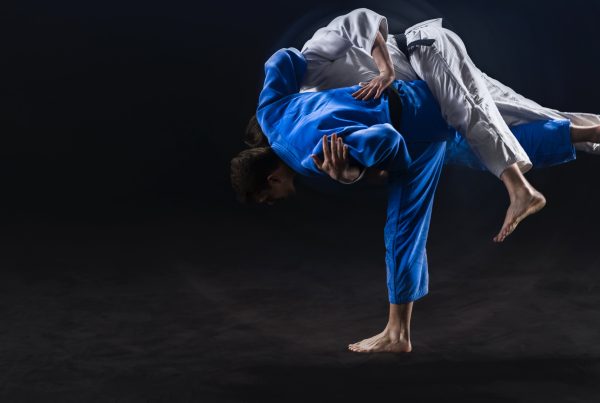I had the privilege this afternoon, after class, to have an extended conversation with a number of my Judo students which left me quite thoughtful.
The comment that launched the discussion was this: “Sensei Bernard, you seem to be very disciplined. Were you always like that or did you develop this trait over time and how can I increase my own discipline in various aspects of my life?” This question, and the numerous ones that followed during the ensuing hour or so, took us down many lines of inquiry: My family, my upbringing, what time I get up in the morning, how I met my wife, at what time my family eats dinner, how long I have been practicing Judo, what I do for a living, how I organize my life so that I can balance family, work and Judo, and many more.
Much more interesting to me than the answers I gave to those questions is the fact that these young people – some in university, others a few years into their professional careers – would care about my views on these matters and want to hear about the way I live my life outside of the dojo. For context, I should mention here that I do not much mix my personal life, my life at work and my life in the dojo. I am usually not comfortable talking about myself and refrain from doing so for fear of boring the listener hopelessly. I also refrain from giving people advice on how they should live their lives: I do my best, like everybody else and there is nothing so special about me that would give me the right to tell others what to do (except when it comes to encouraging physical activity – I confess being quite vocal about that).
Be that as it may, it became clear to me during our conversation that some of the students were looking to open up about some of the challenges they face. They also seemed eager to hear me out, so in the event that any of my thoughts might prove useful to them, I was happy to answer candidly as the questions kept coming for almost an hour.
I would summarize my thoughts, as I was reflecting afterwards on the experience, as follows:
- As a leader or person in authority, what I say or do is observed and noticed, to an extent that is hard to overestimate.
- A leader is a role model whose behavior will have an effect on the people around him/her – for good or ill. From the words I speak to the tone I take too address others; From the way I stand or kneel to the way I tie my belt; From my punctuality to the way I pitch in to lay down the mats and remove them at the end of the class and from the way I teach to the way I spar: Like it or not, all these things help shape the values and behaviors of the people around me.
- What my students care most deeply about is not how many push-ups I can do or how well I can apply this or that technique. While teaching sound technique is undoubtedly one of my key responsibilities, what matters most when everything is said and done is how I exemplify – or not – the fundamental values of politeness, courage, sincerity, honor, modesty, respect, self-control and friendship that form the Moral Code of Judo.
- Students, from time to time, will confide in me regarding some challenges in their lives. The trust that people occasionally choose to confer upon their leaders is a great honor, and a great responsibility.
- Being a leader is not about prestige or power. It’s about showing a path (or dō), fostering a supportive culture and helping people reach their full potential, whatever that potential might be for a given individual.
The events I just related occurred in the context of the dojo but something similar could as easily have unfolded in the workplace. My students’ questions forced me to consider the impact of my role as an instructor and a leader and for that, I am indebted to them. It boils down to this: Leadership, whatever the context, is an immense responsibility.



